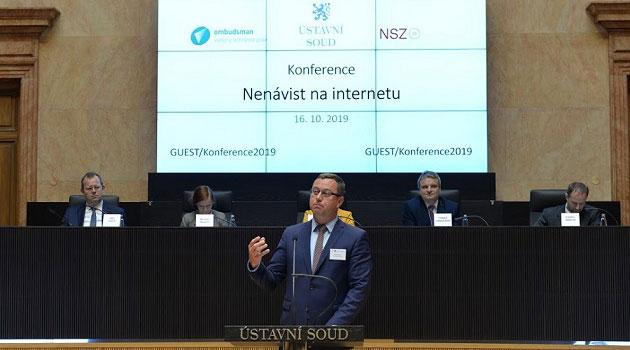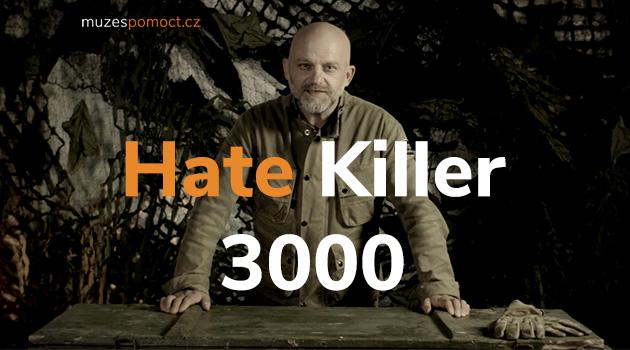Roma are most frequently targeted by hatred on the Czech Internet, experts say the law applies online too

Anonymity online is frequently not what it seems, and those who post hateful content have to know that they can be tracked and held accountable for it, according to Supreme State Prosecutor Pavel Zeman, who spoke at a conference about “Hatred on the Internet” today at the Czech Constitutional Court. Zeman said Romani people continue to be the most frequent targets of hateful prejudice on the Czech Internet, although verbal attacks against Jews and Muslims are also increasing.
The Supreme State Prosecutor said it is necessary to publicly discuss this subject and for convictions punishing hate speech online to be publicized. The vast majority of such verdicts have been handed down against male perpetrators, only a few of whom are recidivists – most of the time they are “ordinary people”, according to the Office of the Public Defender of Rights, which has analyzed Czech court decisions in such matters.
“People have to know that the Internet is not anonymous, that what they write there remains available, that it is searchable, and that they are liable for it, very often even criminally liable,” said Zeman. Czech Public Defender of Rights Anna Šabatová said: “The public must be informed that the law applies on the Internet too.”
Zeman called hate speech a contemporary illness that must be cured, otherwise it can proceed to the next phase and lead to actions such as the recent attack on the synagogue in Halle, Germany. When prosecuting unlawful online hate speech, police and prosecutors must apply new methods and should adapt their work to the characteristics of the online space, Zeman said.
However, he also said that repression by the criminal justice authorities is not the only cure, but is rather an extreme solution. What is important is prevention, public education, and reaching people in their homes and in the schools.
According to Šabatová, hate speech has to be categorically condemned by academics and politicians, who have a social responsibility to do so. “There are few problems in our times that have disturbed me as much as the dissemination of hatred on the Internet,” she said.
“The mass nature of the communication and the partial anonymity seduce people to spew remarks that are so disgusting and inhumane that they take your breath away,” the Public Defender of Rights noted. Hatred, in her view, influences the atmosphere in society.
Šabatová expressed concern for the younger generation, who could consider hateful remarks the norm by now. The President of the Czech Constitutional Court, Pavel Rychetský, spoke and also described his shock when discussion spaces online were first opened up beneath articles on the websites of serious newspapers.
“Never before had I ever seen or heard such concentrated malice, vulgarity, insults, attacks on the most intimate aspects of the human personality, creepy behavior, half-truths and lies, all mixed into a poisonous swamp of anonymous discussion participants,” Rychetský said. He them emphasized that he “hates censorship”.
However, in his view, it is necessary to find ways to defend individuals’ right to express their opinions while preventing the dissemination of opinions promoting racism, xenophobia, and all forms of hatred. “Does the right to hate exist?” he asked.
“Do we have the freedom to be evil? If it is possible to defend against this, then by what means and with what power?” the President of the Czech Constitutional Court asked those assembled.
Rychetský added that the law, in his view, is lagging behind technological development “by several horse lengths”. Constitutional Court Justice Kateřina Šimáčková also spoke and said she herself has faced hateful attacks after handing down several decisions, with people writing to her to say they hope that she burns in hell or will be raped.
Generally, Šimáčková said she believes that these hateful remarks are frequently being voiced by people who are frustrated and unhappy. “It’s necessary to deal with the reasons for their frustration,” the justice said.
Šimáčková also said she believes it is the job of legal professionals and the state to clarify the limits of criminal speech. Awareness must be raised about where the limits of unlawfulness might lead – what it is possible to debate and what will be considered a crime, she said.
